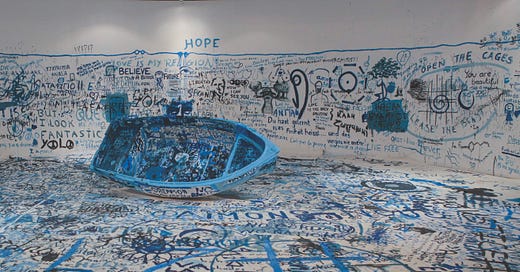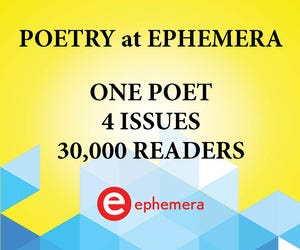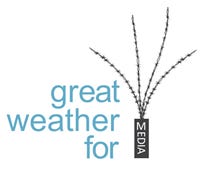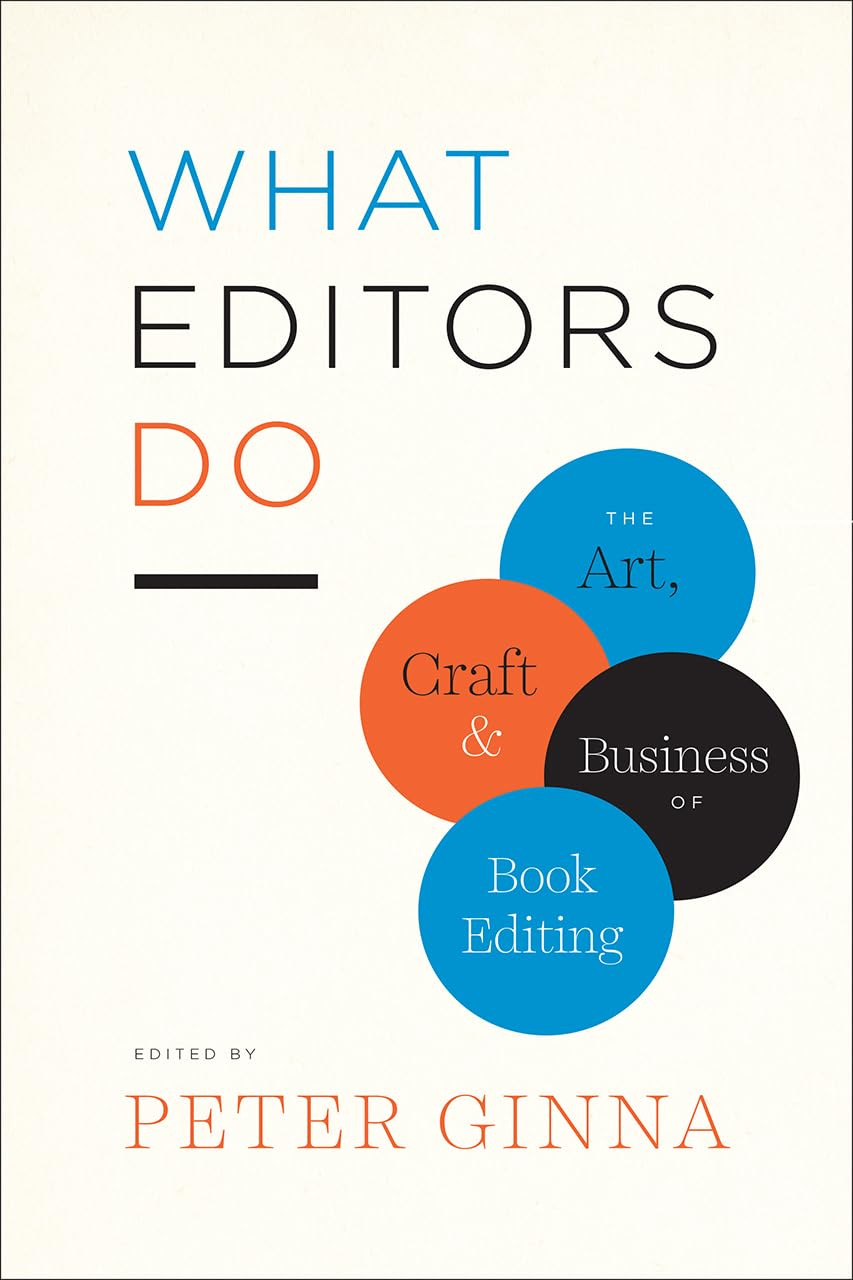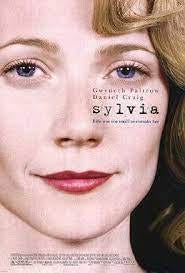Welcome to the Ephemera Newsletter, Freundinnen! (German for “friends”)
Thank you to all who submitted to poetry in November and especially to our finalist, Kirsten Shuying Chen, who will be the poet for the month! You can review her poems altogether once they publish as well as her artist statement and bio on this dedicated post on our substack page. We thank you for checking out her work.
On another note, we appreciate your patience during a busy time of year. We occasionally run into some administrative snafus with selecting and onboarding our poetry selections, as well as the imposing work/life events of the ever crowded December month. We’ll be packing our issues into this month, so stay tuned! Our 4th issue in December will contain most of the same info, but will be lighter on the essays. The new year will afford us the space to get back on track!
On to our standard content matters: Won’t you please check out last week’s issue if you missed it.
And here are some reminders:
Call For Submissions: Submissions are in for the January issues. We are open for February now. December 31 is the deadline. If you are a paid subscriber to Ephemera, you can submit to poetry @ Ephemera for free as a membership perk! (We email you a secret link at the end of the month). Free subscribers and anyone else can submit, too, with the reading fee and can submit up to 10 poems. Paying the reading fee will grant you 1-month paid access to Ephemera’s full letter. Learn more or:
In Brief…this week’s features:
Thoughts on The Weeknd, and a lesser known song comprised of two key samples, “Secrets.”
Thoughts on Yoko Ono and her Avant-garde, multi-faceted work.
December’s poet, Kirsten Shuying Chen and her first of four poems, “As a museum.”
New Feature: Literary Films where we select an interesting movie we’ve seen that dramatizes the life of a writer or writers or artists, particularly we’re interested in biopics, and apropos genre selections.
This month: Sylvia
Our weekly lists:
3 magazines with open calls
3 awards/prizes
3 recent job listings for editors and writers.
**No sponsor this issue: Sponsor our letter! Reach out to info@Litbreaker.com to advertise with us.**
More ephemera: check out an Interesante selection, a brief clip of Ray Bradbury discussing being creative in the now and more; Book Recs, bonus content, and our mini-essays to start!
Support us on Bookshop - See our past book recs and others. A highly curated list.
Merci. Danke. Kiitos. 고마워 Go-ma-wo. Cảm ơn. Xiè xiè.
Ephemera
Dear Readers,
December is a tough month for creativity. We tend concede the territory of new writing, unless we get a sudden, epiphanic flair—quick tip: always carry around a notebook with an internal pen, or have an ideas or “lines” file on your phone, not to mention equip yourself with a good, sure-fire excuse-to-take-five-for-yourself statement that allows you to dip away (practice this in the mirror, if need be)—and get our hours in by reading past work and focused editing sessions. Yet, distraction affects the editorial mind. Sometimes, we find it futile to assay or critique or defamiliarize our work. Welp, good thing we keep a separate journal of editorial tactics, techniques, tricks, and maneuvers of sorts. Sometimes the self wont jive with what’s been decided on its behalf—oh but parties, oh but cocktails, oh but presents, and fires, and trees, and celebrations of duty or historical remembrance, and, uh, like, shopping?…these sales are once a year, friend, and then that new movie or album or podcast just dropped, besides I’m backed up with using my Audible credits, and Insert-Family-Member-Or-Friend’s-Name-Here has asked any number of things of me. Set aside the time! Strictness with self and strictness with your material. Take note of what Ondaatje says…
“I try all kinds of, not tricks so much, but ways to accuse the text: Is this really valuable? If there’s a problem at a certain point in the book, the way to fix it often is to do something somewhere else. Often the solution might be going back and finding something…and reworking that into the right place.”
—Michael Ondaatje, from Susan Bell’s “The artful edit.”
We can use Ondaatje’s words for effecting the day or week we want to have as well as in service of his intent, editing work. Tweak an appointment, a bedtime, a rising time, a dinner time or what have you to open an hour tomorrow. Move a meeting to a call. Schedule a quiet time with your family. Save and move and, really, make sure to have some semblance of a hold on the reins of your day. That’s a good reminder. Too, and we can take the advice to the fullest extent of self-ownership and control since when talking about writing, once we’re at our seat, we’re the object and subject of our policies, be forceful and decided with accusing your text. We love that a scene can be moved, stored elsewhere, hidden away and brought back if necessary. Purge and re-paste. That’s one of the keys to getting the most from self-edits. And this is one of the advantages of writing over other media of art: cutting, saving material, false starts, revisits, all the hacking has little cost but for time (imagine how unforgiving: honing a statue out of a hunk of marble). Hone in on the most parsimonious version of a sequence. Does the extra material matter? Can it be moved? Can it be salvaged? Is its utility realized with the best of your writing or as an aid to get there? Ondaatje refers to this process, in so far as we have it summarized well, as being “anarchic” about your writing. Take the time to review versions. Cut and expunge mercilessly to get your fire going. Save the shavings. Bend, press, shake, squeeze, accost your text. When time is precious, be anarchic. Decide and act and sit with the result. Sometimes it’s important to just make yourself feel.
Dankbarkeit!
(Gratitude)
Poetry by Kirsten Shuying Chen
As a museum
Yesterday, there was Science and Charity.
Now at 2 a.m. there is only my swollen face.
Yesterday, there was milk and coffee
and the escaping Women
of Las Meninas. There was my mother.
The body knows.
The night knows and the body listens.
I have my mother in my chest.
I have my mother in my peripheral.
She lets herself out. I leave myself open.
I am the whole world anyway.
I watch as she goes charging past
every stop sign in an open aviation field.
My mother sees the chance for flight,
so she takes it.
I don’t chase after her.
I keep my eyes open the whole time.
I even breathe light into the runway
like rows of candles lit in honor
of momentum.
So that when she rises,
I will watch her go.
I will know I am a part of it.
Music: The Weeknd
We’re not huge pop-anything fans, though the occasional song breaks through the morass of over produced and under-thought plethora of industry-backed tracks that take over the listening landscape. OK, there’s some fun and decent stuff out there, but a steady, constitutionally enriching diet it does not make, particularly as you age out of the sentiments and notions of adolescence. Welp, enter The Weeknd, comprised of solo vocalist Abel Tesfaye and extremely catchy, deluxe-produced tracks that play well nearly anywhere…so why not in our letter? And so, we bring to you The Weeknd’s “Secrets” maybe because it has a lot of staying power. A tasteful disco-house track with synthy vocals and other effects, sneaky-interesting lyrics, and a sentiment that anyone who’s ever loved jealously or insecurely or, perhaps, ever loved at all, can relate to.
There’s some great, slick vocals in this track and the sounds are glossy, crisp, and nearly perfect. It just vibes. It draws you in with a memorable and immediately catching riff. Quickly, Tesfaye comes in. The song has confidence. It just proclaims itself. The interesting high-pitched instrumentation followed by and melodically married with Tesfaye’s vocals feels seamless. Then we quickly get to the chorus, which emotes heartfelt but not cloying. Everything is weighted and balanced just so. As you might get annoyed by a sound, or a too long lingering ploy, it vanishes or morphs into something new and equally furtive while also compelling. The producers of this track—folks called Cirkut, and Doc McKinney—clearly know music. They’ve drawn from two very well-liked rock and new wave tracks from the 80’s, The Romantics’ “Talking in Your Sleep,” and Tears for Fears’ “Pale Shelter,” and have melded them together. An extraordinary case of exquisite sampling, (we like to talk about exquisite borrowing, but, in this instance, it’s literally a sample and, while borrowed and improved and made into its own thing—it more accurately could be called a mash-up—these other tracks are receiving royalties because of how closely it “takes” which in the writing world, without quotation and or references, would be plagiarism) “Secrets” is an amalgam, a monster unlike Frankenstein’s, one who will have a long-term successful life not particularly worried about its origins. Maybe even reveling in its own borrowedness. And why not? As the kids seem to be saying these days, and as we reluctantly parrot, it’s a bop.
“I hear the secrets that you keep
When you're talking in your sleep”
—The Weeknd, from “Secrets” borrowed from The Romantics
The sampling on this lesser-known song from the album, which has 329 million listens on Spotify as a “hidden” gem of sorts (it’s in the middle third of tracks on the album, one which boasts of an astonishing three tracks with a billion plus views), is what we’re focusing on craft wise. Next week, we’ll take a close look at “Pale Shelter,” but go ahead and listen to it and then back to “Secrets.” The same for “Talking in Your Sleep.” We read the mash-up quality as homage. As literary echo. And we get to thinking, how might this be pulled off on the page, in a poem or prose? We can’t use material as directly without quoting it, which turns any text into something different. We can pull off, for instance, sequences or flourishes of style that mimic another work exactly but for different words, different characters. We can borrow tonal execution, rhyme schemes, rhythms and rhapsody. “Secrets” borrows beyond even the samples. Apparently, he quotes Jeff Buckley from his track “Everybody Here Wants You.” This one we had to look up, but that just goes to show how artful of a mélange The Weeknd’s track is. Borrow, homage, quote from and rhyme with your favorites, but, remember, the litmus is two fold: don’t steal and the sum of your endeavor has to be wonderfully worth it, something that’s of you nonetheless.
Interview with producer Doc McKinney on his contribution to The Weeknd’s album Starboy.
Writers Submit: 3 Magazines
The print publisher does things a little bit differently, with an annual anthology that acts like a yearly journal. Founded in 2010, the NYC-based annual and book publisher is reading in all genres. DEADLINE JANUARY 15
Blink-Ink is a quarterly fiction only print journal that publishes flash-fiction under 50 words. The magazine is archived at The Beinecke Rare Book and Manuscript Library at Yale University. Free to submit! DEADLINE JANUARY 15
A Journal of Art and Literature by Women, Calyx is in print and is reading in all genres. They have published over 75 editions and also offer other publication opportunities throughout the year. DEADLINE DECEMBER 31
Weekly Artist: Yoko Ono
Born in Tokyo, Japan in 1933, Yoko Ono waited out the bombing of during WWII in a bunker with her mother and other peers. They left the bunker, it’s said, only to be faced with starvation and had to barter belongings for food. Ono attributes this 1-2 year period as being formative, as one might imagine, imbuing her with a trademark aggressive and outsider self identity. A quick two semester at a college in Japan, Ono left to be with her family who had migrated to Scarsdale, NY, enrolling at Sarah Lawrence College where she studied poetry and music composition. During college and then even more so when she left to move downtown, Ono became a fixture in the Avant-garde arts community, hosting impromptu concerts and art exhibitions in a flat she lived and created in. This was the art scene of 1960’s New York, which saw Ono work with and around the Fluxus Group, a collective that focused on process and performance. Famously, Ono married the late John Lennon of the Beatles at the close of the decade and performed collaborate work with Lennon in the Plastic Ono Band.
While Ono has had a complex life of art and music and tragedy—her biography is worth the wikipedia or even a more official read—we’re interested in her very conceptual and performative visual artwork. She’s known for work that defies categorization, working between disciplines with sculpture, performance, poetry, and painting. Her work is exhibited in numerous museums around the world, though she’s perhaps not as well-known with general audiences for this work. One of her most well-known works is Ceiling Painting/Yes Painting which is an interactive piece where the viewer is invited to climb a latter up to a suspended canvas with the word “yes” written in miniature all over it viewed only as through a magnifying glass (see below). Another important piece of hers, featured below, is Play it by Trust, a mono-color chess board with mono-color pieces that make it nearly impossible to differentiate sides during a round, the concept of competition and warfare being brought into question. Leaning into the performance side, she was the first performance artist to let gallery viewers cut clothes off of her person, a trend replicated and perhaps attributable to Ono.
“Art, for me, is about survival for my mind—like, if I don’t do these things, then I might become insane or something. So it helps you keep your sanity just to do it. You have to release your emotion in order to keep your sanity.”
―Yoko Ono, from interviewmagazine.com
We’re marveling at how prolific Ono’s career has been, diverse and multifaceted as well with 14 studio albums, 15 books, and over dozen art collections to her name. Her ambition, creativity, and insistence on work that promotes peace and goodwill, thinking, experience, oddity and the expression of self in conversation with self, the artist medium, and the viewer. We like her tenacity. We like the idea that there’s so much to say and very little time so why not get to it. Maybe just put yourself out there. Maybe the work can be something that you intend in a finite time frame…this idea makes sense coming from a performance artist, at least someone who focuses on the process, too, not simply the product. Writing can be painstaking, and necessarily so. But perhaps we can learn from Ono to draft more freely, to play widely within our discipline (or in others) and to let go of work more easily. One of Ono’s best qualities, speaking as outsiders and non-experts, is the perception she gives off as being unapologetically herself. Maybe we have a lesson there: unapologetically channel self in your creations.
Short, interactive visual interview with Ono and the NYT.
Interesante: Novelists and Poets on AI
From: theguardian.co.uk
— (6 min read/12 min study)
“There may be no original thought in fiction, but it’s earthshaking stuff to follow along as a writer encounters the (to them) unknown. AI cannot do this; it maps only the known. The stakes are nonexistent.”
—YZ Chin
A new version of ChatGPT is coming, one that can process (with a paid account) 100,000 words, i.e. it can remember what it wrote for that many. There’s a distinct possibility that this A.I. might someday, if not soon, learn to write even literary novels and poetry, in addition to many other things proficiently. We’ll be checking in periodically and recommending articles to our readers so you might stay abreast of the field and how we all might be affected. In this article, we get takes on the current circumstances and what it could mean for writing from a smattering of novelists and poets. There are some great insights and interesting writerly tidbits. Informative, literate, intriguing, and salient. Read Here.
Prizes/Awards/Stipends Spring ‘23
W.Y. Boyd Literary Award awards $5,000 for the best fiction written about any time of American war. The prize was founded in 1997 and hosted by The American Library Association. $5k award. No fee. DEADLINE DECEMBER 31
Colorado Prize in Poetry awards $2,500 and publication for a full-length poetry manuscript. Published by the Center for Literary Publishing. Hosted by Colorado State University. $2.5K + Pub. + 25 Copies. $28 fee. DEADLINE JANUARY 14
Orison Books Poetry and Fiction Prizes awards $1,500 for a full length poetry and fiction manuscript and publication. The publisher has published over 60 books and offers opportunities throughout the year. $1.5K + Pub. $25 fee. DEADLINE APRIL 1
Bookstore: Guides, Gifts & Classics
Please consider supporting our letter and literature by buying books. It helps us and others! Bookstore via Bookshop.
Carl Phillips’ Then The War - Poems. Winner of the 2023 Pulitzer in Poetry.
From Last Week — What Editors Do:
»»»Remember last week’s letter has urgent deadlines!«««
Thank you for subscribing to Ephemera. We appreciate your support very much! It means a lot to have you as a reader and paid subscriber. We look forward to growing the letter and bringing you new content and conversation along side our staples. At present, we’re considering creating a book volume containing a large part of our content, including artwork and essays. We’re also considering other projects, such as a monthly podcast, mini-videos, and a Q&A with our editors. Let us know if you have any ideas on how we can improve.
~~~Lebewohl~~~
(Farewell)
*
*
*
**Select Job Postings**
SUNY Oswego: Writer in Residence. MFA/PhD or Pubs. Apply by DEC 22.
Lifemoves: Sr. Grant Writer. FT. BA 5+ yrs exp. $75k+. Santa Clara, CA
AyaHealthcare: Sr. Cr Wr. FT. BA+ 8+ yrs exp. ~$90k+. Remote.
Writing and Cinema: Sylvia (R, 2003)
Director: Christine Jeffs
Writer: John Brownlow
Synopsis: A dramatization of the relationship between Sylvia Plath and Ted Hughes starring Gwyneth Paltrow and Daniel Craig.
Watch it on Amazon
Ephemera Programs
Poetry at Ephemera:

